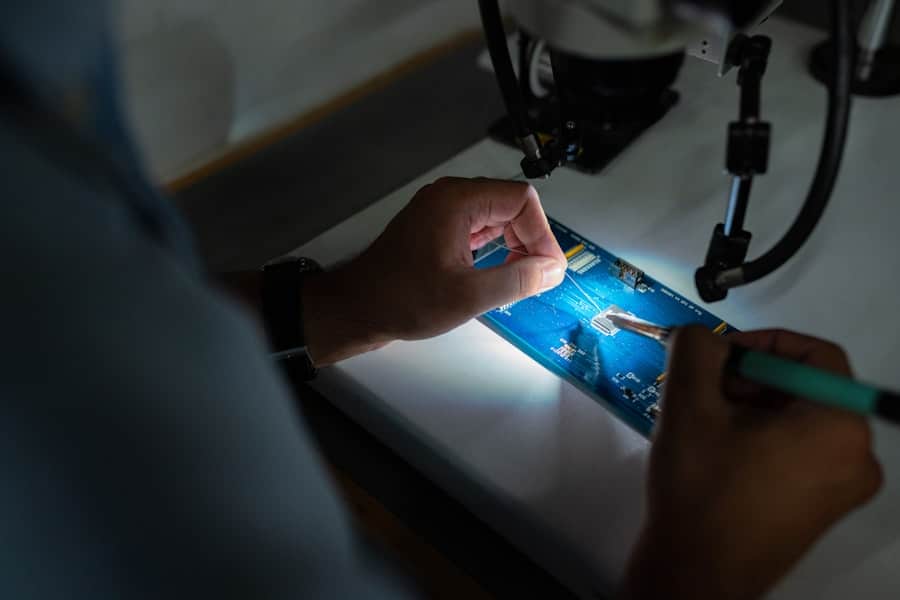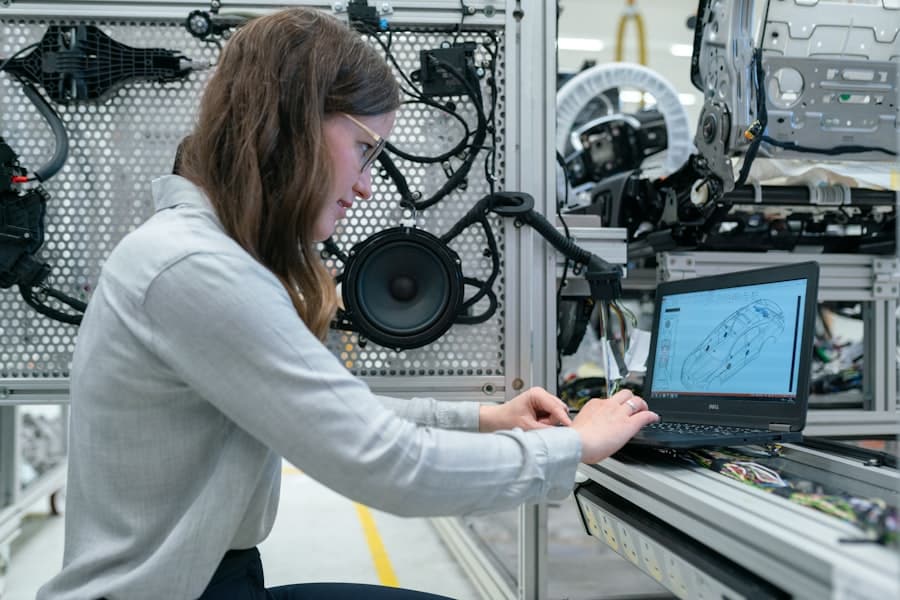As you delve into the world of advanced sprinkler system technology, it becomes clear that these systems have evolved significantly over the years. Modern irrigation systems are not just about delivering water; they are sophisticated networks designed to optimize water usage, enhance plant health, and reduce waste. You may find that these systems incorporate various technologies, including sensors, timers, and smart controllers, which work together to create a highly efficient watering schedule tailored to the specific needs of your landscape.
The integration of weather data into these systems is one of the most remarkable advancements. By utilizing real-time weather information, your sprinkler system can adjust its watering schedule based on rainfall, temperature, and humidity levels. This means that on a rainy day, your system can automatically skip watering, conserving water and saving you money on your utility bills.
Understanding these technologies not only helps you appreciate the complexity of modern irrigation but also empowers you to make informed decisions about your own system.
Key Takeaways
- Advanced sprinkler system technology offers improved efficiency and water conservation through smart irrigation systems and pressure regulation techniques.
- Common sprinkler system issues include leaks, valve and timer malfunctions, and electrical system problems, which can be identified and resolved with advanced leak detection methods and troubleshooting techniques.
- Upgrading to smart irrigation systems can provide advanced water conservation techniques and improved control over watering schedules and patterns.
- Advanced nozzle and head maintenance, as well as system flushing and cleaning methods, are essential for ensuring optimal performance and longevity of the sprinkler system.
- Hiring a professional for advanced sprinkler system repairs is recommended for complex issues and to ensure proper installation and maintenance of advanced technology.
Identifying Common Sprinkler System Issues
When it comes to maintaining your sprinkler system, being able to identify common issues is crucial. One of the most frequent problems you might encounter is uneven watering. This can manifest as dry patches in your lawn or garden, indicating that some areas are not receiving adequate moisture.
Often, this issue arises from clogged nozzles or misaligned sprinkler heads. By regularly inspecting your system, you can ensure that each component is functioning correctly and that water is being distributed evenly across your landscape. Another common issue is water pressure problems.
If you notice that your sprinklers are not spraying as they should, it could be due to low water pressure or a malfunctioning valve. Low pressure can lead to insufficient coverage, while high pressure can cause misting and waste water. By understanding how to troubleshoot these issues, you can maintain optimal performance and ensure that your plants receive the hydration they need.
Advanced Leak Detection Methods

Detecting leaks in your sprinkler system is essential for maintaining efficiency and conserving water. Advanced leak detection methods have emerged that allow you to identify issues before they escalate into costly repairs. One effective technique involves using pressure sensors that monitor the system’s pressure levels in real-time.
If a drop in pressure is detected, it may indicate a leak somewhere in the system. By addressing these leaks promptly, you can prevent further damage and reduce water waste. Another innovative method for leak detection is the use of acoustic sensors.
These devices can pick up the sound of water escaping from pipes or fittings, allowing you to pinpoint the location of a leak without extensive digging or disruption to your landscape. By incorporating these advanced technologies into your maintenance routine, you can ensure that your sprinkler system operates at peak efficiency while minimizing water loss.
Advanced Valve and Timer Troubleshooting
Troubleshooting valves and timers in your sprinkler system can be a daunting task, but understanding their functions can simplify the process. Valves control the flow of water to different zones in your irrigation system, while timers dictate when and how long each zone receives water. If you notice that certain areas are not receiving water or that your system is running at odd times, it may be time to investigate these components.
One common issue with valves is that they can become stuck due to debris or mineral buildup. Regular maintenance, including cleaning and inspecting valves, can help prevent this problem. Additionally, timers may require reprogramming or battery replacement to ensure they function correctly.
By familiarizing yourself with these components and their common issues, you can troubleshoot effectively and keep your sprinkler system running smoothly.
Upgrading to Smart Irrigation Systems
As technology continues to advance, upgrading to a smart irrigation system can offer numerous benefits for both efficiency and convenience. Smart systems utilize weather data and soil moisture sensors to determine when and how much to water your landscape. This means that you can enjoy a lush garden without the worry of overwatering or underwatering.
Moreover, many smart irrigation systems come with mobile apps that allow you to control your sprinklers from anywhere. Whether you’re at home or on vacation, you can adjust settings, monitor water usage, and receive alerts about potential issues. By making this upgrade, you not only enhance the health of your plants but also contribute to water conservation efforts in your community.
Utilizing Advanced Pressure Regulation Techniques

Maintaining proper water pressure is vital for the efficiency of your sprinkler system. Advanced pressure regulation techniques can help ensure that each zone receives the appropriate amount of water without causing damage to your plants or wasting resources. One effective method is the installation of pressure-regulating valves (PRVs), which automatically adjust the pressure entering your irrigation system.
By using PRVs, you can prevent issues such as misting or uneven coverage caused by excessive pressure. Additionally, incorporating pressure gauges into your system allows you to monitor pressure levels regularly and make adjustments as needed. Understanding and implementing these advanced techniques will not only improve the performance of your sprinkler system but also promote healthier plant growth.
Advanced Nozzle and Head Maintenance
The nozzles and heads of your sprinkler system play a crucial role in delivering water efficiently to your landscape. Over time, these components can become clogged with dirt or mineral deposits, leading to uneven watering patterns. Regular maintenance is essential for ensuring optimal performance.
You should consider cleaning or replacing nozzles periodically to maintain their effectiveness. In addition to cleaning, adjusting the angle and spray pattern of your nozzles can significantly impact coverage. By taking the time to assess and fine-tune these components, you can enhance the efficiency of your irrigation system and ensure that every inch of your garden receives adequate moisture.
Advanced Wiring and Electrical System Repair
The electrical components of your sprinkler system are just as important as the mechanical parts. Issues with wiring or electrical connections can lead to malfunctions in timers and valves, disrupting the entire irrigation process. If you notice that certain zones are not activating or that your timer is unresponsive, it may be time to inspect the wiring.
Advanced troubleshooting techniques involve using multimeters to test voltage levels at various points in the system. This allows you to identify any faulty connections or damaged wires quickly. By addressing electrical issues promptly, you can prevent further complications and ensure that your sprinkler system operates reliably.
Incorporating Advanced Water Conservation Techniques
Water conservation is more important than ever, and incorporating advanced techniques into your sprinkler system can make a significant difference. One effective method is implementing drip irrigation for specific areas of your garden, such as flower beds or vegetable patches. This targeted approach delivers water directly to the roots of plants, minimizing evaporation and runoff.
Additionally, rainwater harvesting systems can be integrated with your existing irrigation setup. By collecting rainwater in barrels or cisterns, you can use this resource for watering during dry spells, reducing reliance on municipal water supplies. By adopting these advanced conservation techniques, you not only contribute to environmental sustainability but also lower your water bills.
Advanced System Flushing and Cleaning Methods
Regular flushing and cleaning of your sprinkler system are essential for maintaining its efficiency and longevity. Over time, debris and sediment can accumulate in pipes and nozzles, leading to clogs and reduced performance. Advanced flushing methods involve using high-pressure water jets to clear out any buildup within the system.
In addition to flushing, consider using specialized cleaning solutions designed for irrigation systems. These products can help dissolve mineral deposits and other contaminants that may hinder performance. By incorporating these advanced cleaning methods into your maintenance routine, you can ensure that your sprinkler system remains in top condition year-round.
Hiring a Professional for Advanced Sprinkler System Repairs
While many aspects of sprinkler system maintenance can be handled independently, there are times when hiring a professional is the best course of action. Complex repairs involving electrical components or extensive leaks may require specialized knowledge and tools that only an experienced technician possesses. By enlisting professional help, you can ensure that repairs are conducted safely and effectively.
Moreover, professionals often have access to advanced diagnostic tools that allow them to identify issues quickly and accurately. This not only saves you time but also prevents potential damage from improper repairs. When considering whether to tackle a repair yourself or hire a professional, weigh the complexity of the issue against your own expertise and comfort level with DIY projects.
In conclusion, understanding advanced sprinkler system technology equips you with the knowledge needed for effective maintenance and troubleshooting. By identifying common issues early on and utilizing advanced methods for leak detection, valve troubleshooting, and pressure regulation, you can enhance the efficiency of your irrigation system significantly. Upgrading to smart systems and incorporating water conservation techniques further ensures that you are making responsible choices for both your landscape and the environment.
Whether you choose to handle repairs yourself or seek professional assistance, staying informed about advanced practices will ultimately lead to a healthier garden and more efficient use of resources.
If you are looking for more information on landscaping services in Boston, Massachusetts, you may want to check out this article that provides insights into the various landscaping services available in the area. It can be helpful to know what questions to ask a landscaping company before hiring them, so be sure to read this article for some guidance. Additionally, if you are considering replacing your landscape, you may find this article useful for tips and advice on how to go about it.
FAQs
What are advanced sprinkler system repair techniques?
Advanced sprinkler system repair techniques refer to the more complex and specialized methods used to diagnose and fix issues with sprinkler systems beyond the basic drips and drains. These techniques may involve troubleshooting electrical components, repairing or replacing advanced system features, and addressing more intricate system malfunctions.
What are some examples of advanced sprinkler system repair techniques?
Examples of advanced sprinkler system repair techniques include diagnosing and repairing electrical wiring issues, troubleshooting and fixing problems with advanced control panels and sensors, repairing or replacing malfunctioning valves and solenoids, and addressing issues with complex irrigation system designs such as drip irrigation or multi-zone systems.
When should advanced sprinkler system repair techniques be used?
Advanced sprinkler system repair techniques should be used when basic troubleshooting and repair methods have been exhausted, and the issues with the sprinkler system require more specialized knowledge and skills to diagnose and fix. These techniques are typically employed when dealing with more complex system malfunctions and components.
Who should perform advanced sprinkler system repair techniques?
Advanced sprinkler system repair techniques should be performed by experienced and qualified professionals such as licensed irrigation technicians or sprinkler system repair specialists. These individuals have the necessary training and expertise to safely and effectively diagnose and repair advanced sprinkler system issues.
What are the benefits of using advanced sprinkler system repair techniques?
Using advanced sprinkler system repair techniques can help ensure that complex system issues are properly diagnosed and fixed, leading to improved system performance, water efficiency, and overall functionality. Additionally, employing these techniques can help prevent further damage to the system and reduce the need for frequent repairs.
